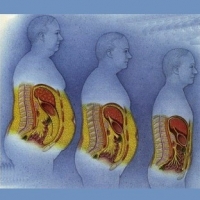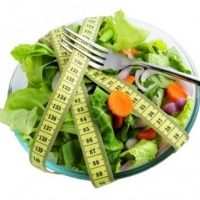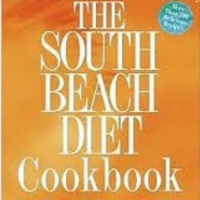How To Lose Weight And Become Physically Fit
There is no magic way to lose weight. The formula is simple and easy – Burn more calories than you take in and you lose weight!
What is a calorie? 1 calorie is the amount of energy it takes to raise the temperature of 1 gram of water 1 degree Celsius. Calories are fuel and fuel enables work. If you take on more fuel than you need it gets stored. If you take on too little fuel then work stops or you use the stored fuel.
What does this mean? All of the functions of life require energy and that energy is derived from calories. Those functions, such as breathing, moving and thinking require fuel from an outside source (calories from food) that can be converted into the type of energy necessary to perform that specific function.
If you want to gain weight you eat more food (calories), and, conversely, if you want to lose weight you eat less food. Sounds too simple doesn’t it?
Most people are confused about the difference between metabolism and metabolic rate, and how they fit in to the whole health and fitness issue.
Simply put, metabolism is the process of converting food into energy and metabolic rate is the speed at which this conversion takes place.
It is very important to understand these differences because these are the two baseline factors that all health and fitness goals and programs should be based on.
Metabolism determines which foods you will need to eat in order to meet your specific goals, and Metabolic rate determines how much of these foods you need to eat in order to meet your goals.
People like to blame a “slow metabolic rate” for being overweight and/or not being able to lose weight. The reality is that a slow metabolic rate is hardly ever to blame. Metabolism certainly affects your body’s energy needs, but it is your food and beverage intake combined with your level of physical activity that determines how much you weigh.
Simply stated, metabolism is the process your body uses to convert food into energy. It is a complex chemical process where the calories in your food are combined with oxygen to release energy. The released energy drives all of your bodily functions as well as physical endeavors such as sports activities (or even just moving your arm).
The number of calories your body uses to carry out basic functions is called your basal metabolic rate and the “speed” at which your body does this is your metabolic rate.
I know it is “fashionable” to blame your metabolism for weight gain, but metabolism is individual to each person and as such your body balances it to meet your individual needs. That is why, so called, starvation diets don’t work. Your body compensates by slowing down so you don’t need as much energy allowing it to conserve calories for survival. In other words it’s a vicious cycle – eating less causes your metabolism rate to slow down even more. You’re hungry but you aren’t losing weight, or you succeed in losing weight but as soon as you start eating again you gain it all back.
In all fairness there are rare cases in which medical problems, such as Cushing’s Syndrome or thyroid issues, can slow down your metabolism and cause excessive weight gain.
However, for all intents and purposes, weight gain is the result of eating more calories than you burn. Therefore, if you want to lose weight you have to create a dynamic where you burn more calories than you consume by reducing the amount you eat or by increasing your level of activity or a combination of both.
Let’s talk about fitness now. It is simple, conceptually, too.
If you want a “fit” body - use it!
It's all about getting more oxygen capacity into your muscles. All of the oxygen your muscles get comes from your blood, so if you want to better oxygenate your muscles you need to make your oxygen delivery system more efficient. Your oxygen delivery system consists of your heart, veins and arteries. The only way to make this system more efficient is to increase your heart rate and you do that with Aerobic Exercises.
The only way to increase the efficiency (strength and speed) and/or size of your muscles is to use them. The more you use them and the harder you use them, the stronger and/or larger they become. The only question is how you do that in order to accomplish the goals you have set for yourself. That, of course, is a very big issue and one I’m going to talk about, in depth, in the future.
However, the bottom line for today is, if you want to lose weight you have to eat fewer calories than you burn. Period. You can do that by reducing the amount of food that you eat and by altering the kinds of food that you eat as well. You can, effectively, do the same thing by increasing your physical activity to the point that you are burning more calories than you are eating, or you can combine the two.
If you want to improve your overall fitness then you combine eating behavior modification with increased physical activity.
That’s it – that’s what you do. Everything else is about how you do it, and I will discuss the myriad of “how” methods in future articles.
-
Ayurvedic Herbal Weight Loss Pills To Get Back In Shape
Weight loss is only a dream for many people because they are not able
-
Fat Burning Furnace Ebook Free Download
Rob Poulos, who has fought against his overweight since his childhood.
-
Acai Berry and Weight Loss: What You Need to Know
If we were to believe all the things we hear and read about
-
Quick Weight Loss Solutions and Watch the Weight Drip Off!
Quick Weight Loss Solutions and Watch the Weight Drip Off! Lose Half
-
7 Tips How to Lose Belly Fat Fast
Belly fat not only makes you ugly but also possesses serious threat to
-
Best Herbal Slimming Pills To Get Rid Of Excess Body Weight Fast
Maintaining proper body weight plays a great role in ensuring good he
- DON'T MISS
- How To Burn Fat Fast: Go For Speedy-Burn, Not Crash-Burn
- High Protein Diets: Are They Right for Everybody?
- Fat Burning Furnace - The Easy Diet with Powerful Breakthrough Techniques!
- Where Is The Weight Loss Fairy?
- Boost the Fat Burning Process with the Best Fat Burning Tips
- 5 Ways to Get Fit, Lose Weight, and Feel Better Fast
- Fat Burning Furnace - Economically Friendly Cheap Diet Meal Plans!
- Good Fat Bad Fat
- Laparoscopic Sleeve Gastrectomy
- Strip That Fat - Sick of Overly Restrictive Diets?




